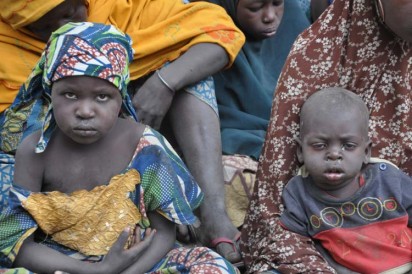According to a United Nations official, more than a million hungry Nigerians affected by Boko Haram’s insurgency face death if promised food aid funding from international community fails to arrive.
Peter Lundberg, the deputy U.N. humanitarian coordinator in Nigeria, wrote in the French newspaper Le Monde that just 15 percent of the U.N. aid appeal for one of the world’s worst humanitarian crises has been received. Over the next six months, $242 million is needed to help 1.8 million people, he said.
“Without sufficient financing, the World Food Program will have to reduce its vital support,” he said in the report published on Friday.
A half-million children in the Northeast are suffering from severe malnutrition, Lundberg said. “Without treatment, one in five will die,” he said.
WFP’s Nigeria office did not respond to a request for more details on what aid would be cut and when.
Nigeria is part of what the U.N. has called the largest humanitarian crisis since the world body was founded in 1945, with more than 20 million people in four countries facing possible famine. The other nations are South Sudan, Somalia, and Yemen.
Lundberg said the U.N. has appealed for $1 billion in aid this year for Nigeria, where an estimated 4.7 million people in the northeast are in urgent need of food aid.
The army has been fighting to win back areas that have been under the control of the Boko Haram extremist group. The years-long Islamic insurgency in the Northeast has disrupted both markets and farming, creating the hunger crisis.

